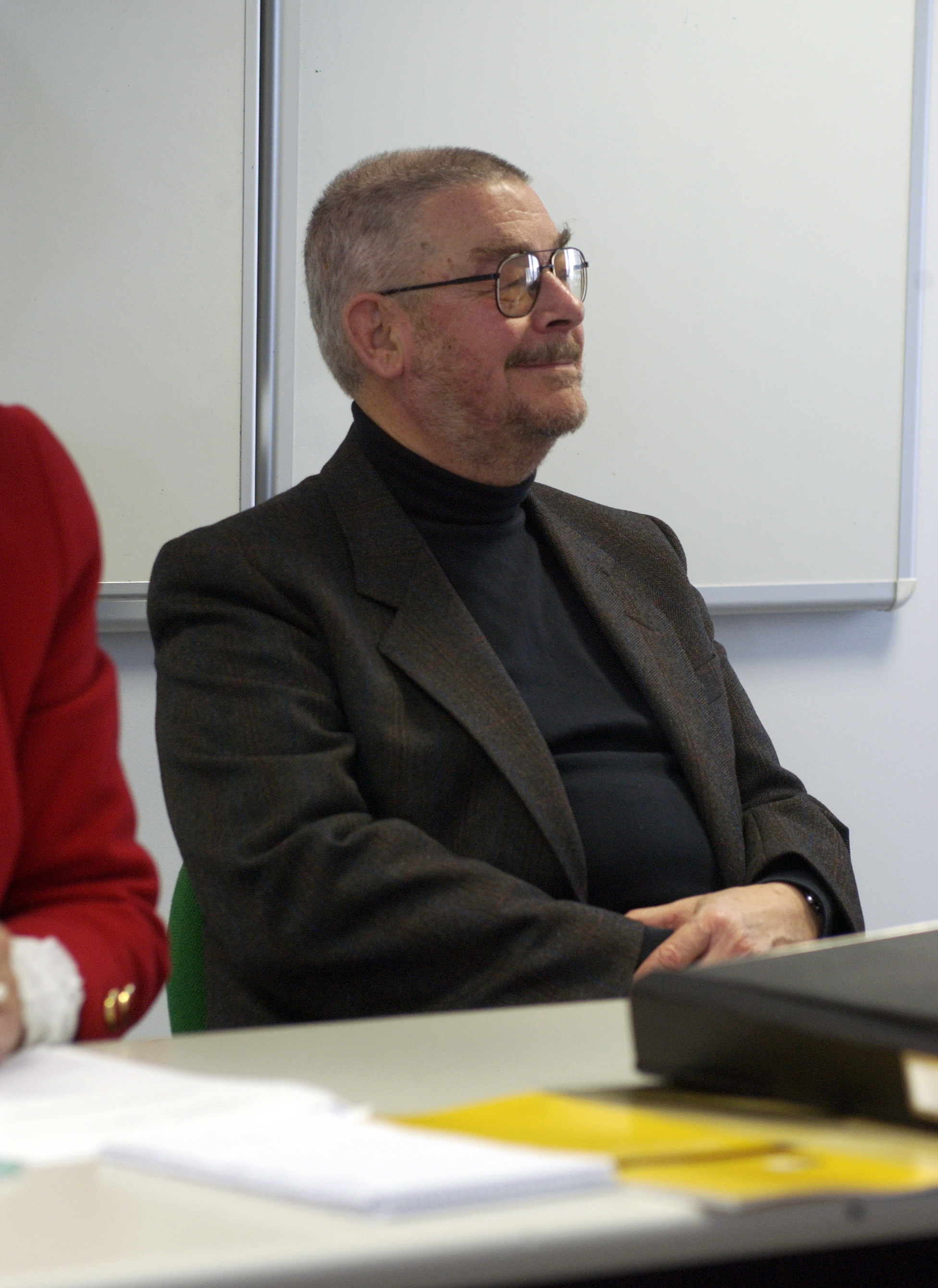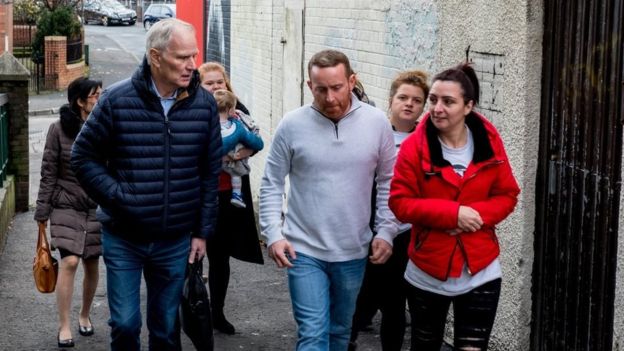Three points to keep in mind when you talk about poverty
Posted on 28 May 2019 Categories: Blog, Language of Poverty, Social Security
by John Veit-Wilson

Poverty is growing in the UK, and it’s not only that more people are suffering, but the hurts and indignities they suffer are getting worse. Much of this avoidable suffering has been caused by two factors directly controlled by the Conservative government: the pseudo-austerity cuts since 2010, especially to what local authorities can and should be doing, and the introduction of Universal Credit. The Labour Party’s consultation on Rebuilding a just social security system, which focuses on social security reform, asks modestly about only one part of this attack on poor people. In this context, we have to be clear about our response to the government’s justificatory rhetoric for causing the suffering and the opposition’s initial thoughts about relieving some of it.
The old story commends those who are pulling the drowning children out of the stream but also asks who is pushing them in. Do we want to relieve poverty or actually prevent it? If we want to prevent poverty, there are three points we should always bear in mind: about what it essentially is, what resources are needed to prevent it, and how we talk about it.
What is poverty?
According to the standard social science definition, poverty is a relational concept. That’s why we talk about relative deprivation. All poverty everywhere is relative to some standard of not-poverty – to adequacy. It’s often measured in terms of cash incomes, and when people haven’t got enough money for food, heating, housing, clothes or other immediate essentials like these, and suffer severely adverse consequences such as malnutrition or homelessness, those forms of extreme poverty are sometimes described as ‘absolute’. However, the word ‘absolute’ has no technical or agreed meaning. For instance, the government uses ‘absolute’ merely to make statistical comparisons for political purposes, but does not use it for extreme poverty of the kind Philip Alston, the UN Special Rapporteur on Extreme Poverty and Human Rights, described so movingly in his devastating 2018 report on the UK. Using ‘absolute’ to describe extreme poverty in the UK allows non-poor people to dismiss the experiences of poor people which aren’t so extreme as not ‘real’ poverty, which is deeply insulting to victims.

All poverty, whatever name it’s called by, can be understood only by contrast with adequacy. Adequacy covers everything that we take for granted in the not-poor world, just good enough but not luxurious. Peter Townsend famously defined this not-poverty as ‘ordinary living patterns, customs and activities’ – in other words, ordinary, messy, inclusive social life as we live it. Poverty was defined as having ‘resources so seriously below those commanded by the average individual or family that they are in effect excluded from ordinary living patterns, customs and activities’(1). Here Townsend was using the word ‘average’ to mean typical or ordinary.
The international human rights literature has lots of examples of how to express adequacy, but in short they refer to a dignified and decent level of living. The UK has signed up to many of these human rights agreements but doesn’t implement them.
Having a dignified and decent level of living means having freedom to choose to live a socially inclusive life, to do all the same silly, wasteful things that everyone else can do, whatever their personal failures and so on, without themselves becoming poor. It means not being told how to live your life by other people who control your resources.
This concept should not be confused with statistical measures of the serious lack of resources, or with income inequality measures. Income measures are necessary proxies for the lived reality. They look precise, but they are imprecise in how they apply in real lived contexts. Income inequality measures such as 60 per cent of median household incomes are misleading because medians don’t tell you anything about adequacy, and people can be poor at incomes well above the median as well.
Nor should the concept be defined by the many descriptions of the dreadful life experiences of poverty’s victims. What’s misleadingly described as ‘absolute poverty’ is descriptions of extreme consequences – they are not definitions. The single defining cause of poverty is people’s serious lack of the material resources needed to be able to choose to live a messy, inclusive social life like everyone else with adequate resources. The causes are not people’s own behaviours, their lack of personal social capital, or their experiences.
What resources are needed to prevent poverty?
Almost the entire discussion of poverty is in terms of people’s power over their own disposable cash resources. There are good reasons why this is so when we are discussing pay or social security or basic income, but it makes little sense in the larger discussion of poverty.
Cash income may seem like the most significant resource in our consumerised and marketised society. Enough of it can buy you out of most problems, as all rich people know. But humans live in complex societies and not simply as individual cash purchasers in those perfect equal information markets which are the fantasy worlds of theoretical neoliberal economists and asocial political philosophers.
The material resources we need for adequate lives are largely collective resources. The more people are supported by collective resources, the less they need individual cash resources. Most of us who are leading adequate but not rich lives depend heavily on collective resources, not just on our own purchasing power. This means all the non-market stuff we expect local and national governments to provide, which has the effect of widening and enriching the choices we can make. It means things like health services, social care, education, cultural and recreational services, housing and public transport. Most of these involve a direct trade-off between collective and individual resources: if they aren’t provided collectively in some form, then you’ve got to pay for them, and that may lead to poverty. We realise that, for instance, the reduction in public rented housing in favour of the private market has increased poverty, but we are often less aware of the impoverishing effects of bus service deregulation. The point is that when we discuss poverty as a serious lack of resources, it’s not just individual cash resources we should think about, but the collective resources, in cash and kind and over time, which matter to enabling people to live adequate, inclusive lives.
How do we talk about poverty?
Precisely because well-meaning people talk about poverty in terms of the sufferings of victims, we often forget how that risks ‘othering’ people in poverty. This is the language Sargent Shriver drew attention to in the American War against Poverty in the 1960s, of We the People and They the Poor. It allows people to ascribe all sorts of personal pathologies to people in poverty, suggesting their poverty is the fault of their own behavioural shortcomings, things like mental health problems, poor education, drug and alcohol addiction, and domestic violence.
This deliberate closure of the poverty discourse so that it emphasises only individual deficits aims to distract us from two things.
First, it aims to distract us from the individual deficits of people who are not poor. People have the same behavioural problems right across society, right across the income spectrum, but some are not poor as well. That’s because they have adequate resources as well as behavioural deficits.
Second, whenever we talk about preventing poverty by doing things to or for the victims, it suggests the causal problem lies only with the victims, who therefore need to be changed. The aim is to distract us from understanding that the power to bring about structural change is held not by victims but by governments. Governments distribute collective and individual resources so that poverty is imposed on some people while non-poor people get benefits such as tax allowances. The prevention of poverty is a political problem, not a merely philanthropic or technical one. As Beatrice Webb wrote to the Royal Commission on the Poor Laws and the Relief of Distress more than a century ago, ‘poverty is not due to a weakness of individual character, but is a problem of social structure and economic mismanagement’.
John Veit-Wilson is Emeritus Professor of Social Policy of Northumbria University and guest member of Sociology at Newcastle University.
(1) Peter Townsend (1979) Poverty in the United Kingdom, Penguin, p 31.
Want to keep up-to-date with more articles like this? Sign up to our newsletter.
Posted on 28 May 2019 Categories: Blog, Language of Poverty, Social Security
